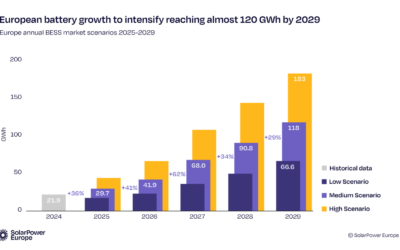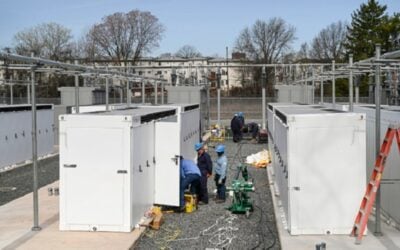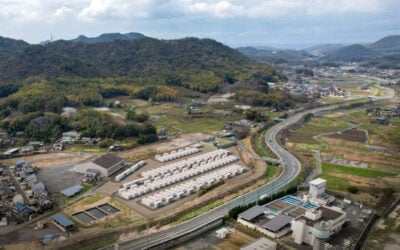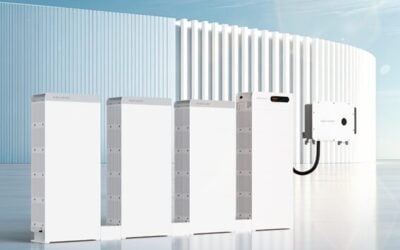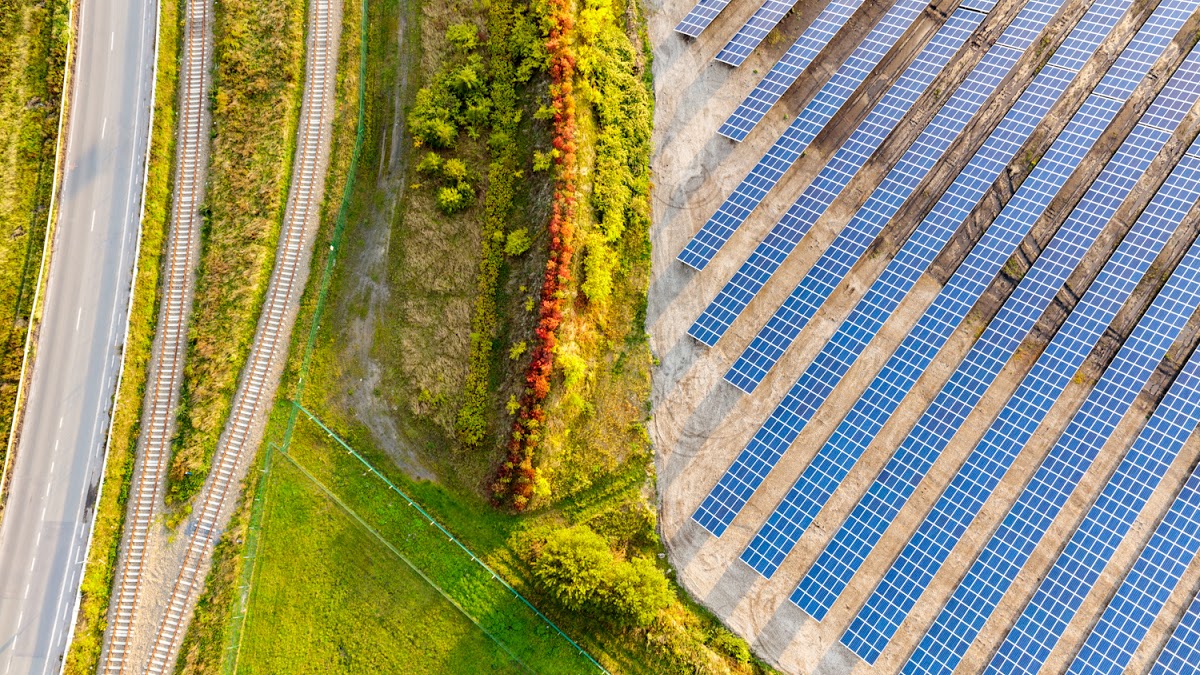
Google is investing in battery energy storage to serve as a backup power solution at one of its data centres, in a project described as a first step in changing data centres “from climate change problems to critical components in carbon-free systems”.
Google’s data centre in Saint-Ghislain, Belgium, was the search engine and web services giant’s first facility to add on-site solar generation, adding a 2.8MW solar array in 2017 to complement various other energy efficiency measures that had already been put in place.
Enjoy 12 months of exclusive analysis
- Regular insight and analysis of the industry’s biggest developments
- In-depth interviews with the industry’s leading figures
- Annual digital subscription to the PV Tech Power journal
- Discounts on Solar Media’s portfolio of events, in-person and virtual
Or continue reading this article for free
Now, the company is seeking to replace diesel generators that provide backup and help keep the facility running in the event of grid outages with battery storage solutions. This week, in a post on the company’s corporate blog, Google VP of global data centres Joe Kava said that the aim is to demonstrate that batteries are a “better, cleaner solution” that has now “advanced far enough to keep the internet up and running”.
Kava’s blog also highlighted that Google recognises that batteries can serve far more than just that one important purpose. It’s rare that backup generators are called into action and they therefore mostly sit idle, Kava wrote, but “batteries are multi-talented team players” that when not in use for backup could perform services that help strengthen the local electric grid.
Kava’s colleague, Maud Texier, who leads Google’s efforts in carbon-free energy, told specialist industry publication Data Center Knowledge that the project’s three aims are to demonstrate batteries as a viable alternative to backup generators, show how the battery storage can balance the grid and pilot the integration of battery storage into Google’s worldwide infrastructure portfolio.
While Google has been carbon-neutral since 2007, the company has been pursuing the more ambitious goal of round-the-clock carbon-free electricity by 2030 at its data centres. Maud Texier told Data Center Knowledge that the solutions provider for the Belgium project – which she declined to name – would be a well-known, leading energy storage integrator in the industry.
Joe Kava wrote in his blog post that Google estimates there to be more than 20GW of diesel generators at data centres world-wide and described that as a “massive opportunity to deploy cleaner solutions”. The company is working with Belgium’s high-voltage transmission system operator, Elia, on the Saint-Ghislain project and will “strive to make our project a model for how data centres can become anchors for carbon-free electric grids,” Joe Kava wrote.
It's not a new concept although the involvement of a massive name like Google may bring it to a wider audience. A 2018 blog from Emiliano Cevinini, VP for commercial and industrial (C&I) solutions at uninterruptible power systems (UPS) provider Vertiv for this website explained how the combination of renewable energy and battery storage could be used effecitvely by data centres not just as a power source but also be of benefit to the local power network and environment, as well as a source of revenues to the customer. Earlier this year, European utility major RWE started marketing a technology solution for data centres that uses batteries for UPS applications to also offer them as a grid-balancing asset.
In a slightly more futuristic use case, liquid metal battery startup Ambri recently signed a deal that could see its technology used in combination with 500MW of renewable energy generation to fully power a massive new data centre complex in Nevada. Google itself signed a deal with utility NV Energy at the beginning of this year that will see it power a new data centre, also in Nevada, with a 350MW solar plant backed by a 250-280MW battery storage system.


